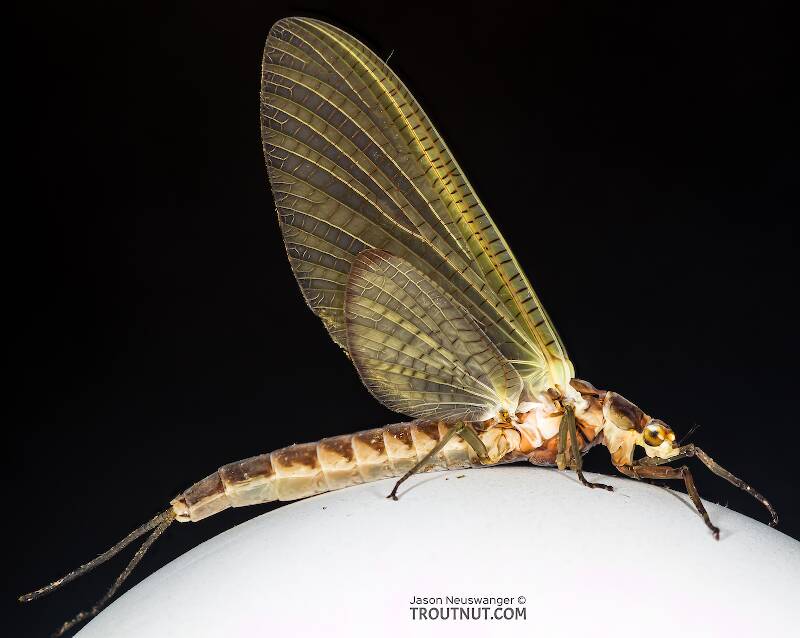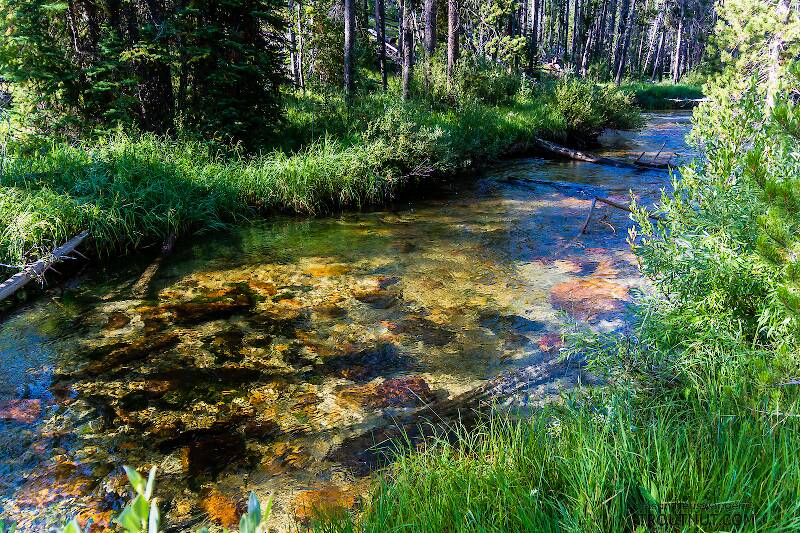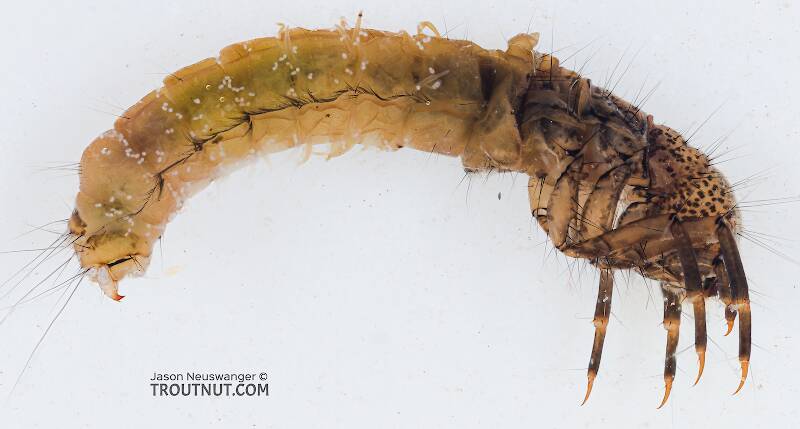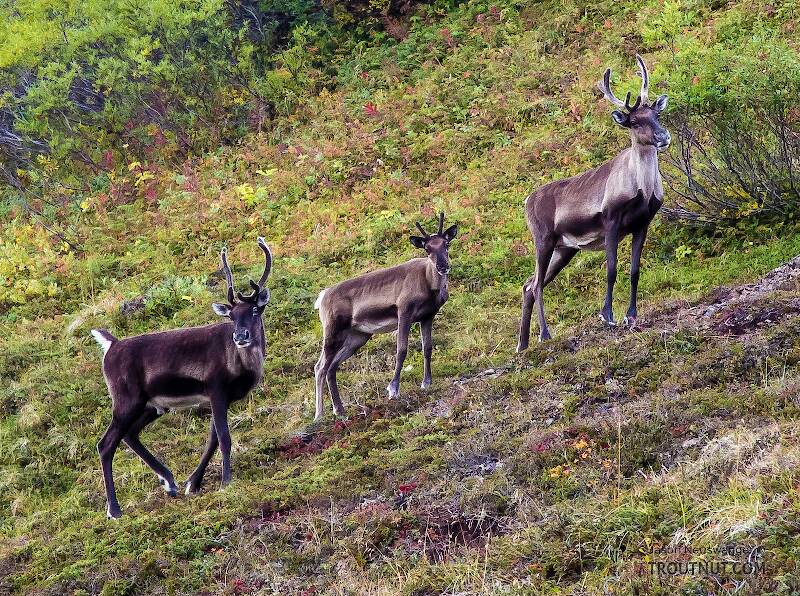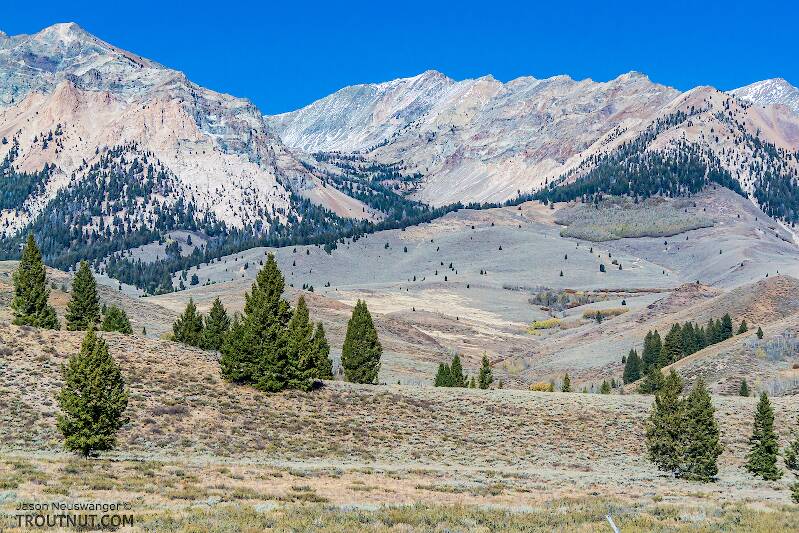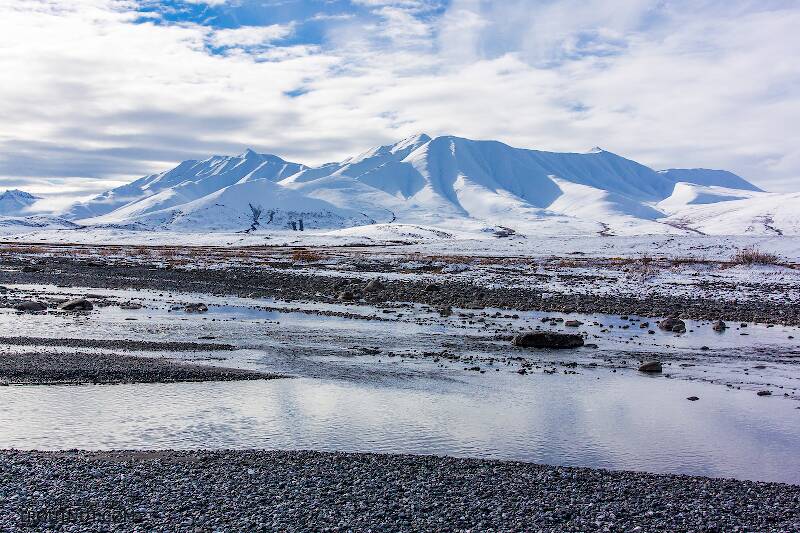This hunt was my first test of a lot of new gear I'd bought for a future sheep hunt and various other adventures. Here I review some of the most important items, especially the ones that really impressed me.
Kuiu (mostly) layering system
I love my Kuiu guide jacket & pants: tough, warm, breathable, soft, perfectly fitted, stretchy, quick-drying, windproof, water-resistant, etc. I've been wearing the jacket all over, even where it looks kind of stupid to show up in camouflage (then again, this is Alaska), because it's so damn comfortable. I also wore the guide gloves & beanie, spindrift jacket, and merino neck gaiter. The spindrift jacket was excellent on the first cold, snowy morning. The guide gloves are pretty good when the temperature's above freezing, but I was glad I brought a warm liner to wear beneath them in the cold. The guide beanie is okay, but it could be a little taller in the back to keep the ears warm. The inexpensive neck gaiter is great: I never would have thought such a thin little thing could make such a warm facemask in cold winds. Yet it's light enough that, in warmer weather, I forgot I had it on for an entire day.
I had previously been very impressed with the water resistance of the "guide" layer fabric, which acts almost like rain gear in a light shower. I found its limitations on this trip. It resists brief contact with water pretty well, but moisture leaks through when there's extended contact, like hiking a mile through brush dusted in wet snow, or crawling around on my knees on bloody ground. It was never advertised as rain gear, but it's good to know the limitations.
My base layer was Core4Element 190-weight merino. Like all light merino it's developing some little holes after intensive use all year long, but it really does the job. I will never go back to the heavy, stinky synthetic fleece I've worn on past hunts.
Kifaru Timberline backpack
This pack arrived in the mail just days before my hunt, and it met my high expectations. Every time I came up with something I wanted the backpack to do, I realized Kifaru had built in an easy way to do it. It holds an enormous volume, or compresses to a reasonable daypack. They got all the little things just right. The fabric is light but tough, and the snaps and zippers seemed unbreakable. It made the heaviest load (I would guess about 100 pounds) very reasonable, and it was easy to tweak the weight distribution while wearing a heavy pack.
The built-in Kifaru gunbearer holds my rifle under one arm, making it easy to draw quickly -- much nicer than a sling or having to carry it in my hands. One time I adjusted it poorly and the barrel kept knocking me in the face, but in general this was the most hassle-free way I've carried a gun.
"Bino chest pack" from Alaska Guide Creations
My #1 desire after my failed hunt last year was a way to carry my binoculars, rangefinder, and other essentials (spare GPS batteries, ammo, license, etc.) with me at all times, quickly accessible, without taking a big pack, and without anything flopping around on a strap when I had to move quickly. This chest pack was great on all fronts, and it didn't slip around or interfere at all with my backpack.
Trekking poles (Black Diamond Contour Elliptic)
I had never used trekking poles before, always assuming walking sticks were for guys twice my age, but I read so many positive things I decided to try them out. What a difference they make!
I never realized before how much leg muscle energy I was expending on balance with a heavy load. If you tip to the side just a little, it takes a lot of effort to stay upright. With trekking poles to make balance easy, the burden of the heavy load on my legs was far less.
It's also nice to be able to rest without taking the heavy pack off -- just bend down, rest each shoulder strap on a pole, and stand there like a table.
Schnee's Granite boots
It seems to be the advice of every sheep hunter on the internet that one's hunting boots should fall within the price range of a used car. I was glad I followed this advice and spent more on footwear than I ever thought would be sane. Along with Darn Tough socks and green SuperFeet insoles, they prevented show-stopping blisters, although some little ones showed up at the end of my heavy trips and reminded me that I should have used moleskin tape from the start to prevent them, not to treat them: a critical lesson for next year's planned sheep hunt. A few times the boots may have saved me from a fall or sprain in the ankle-rolling tussocks:
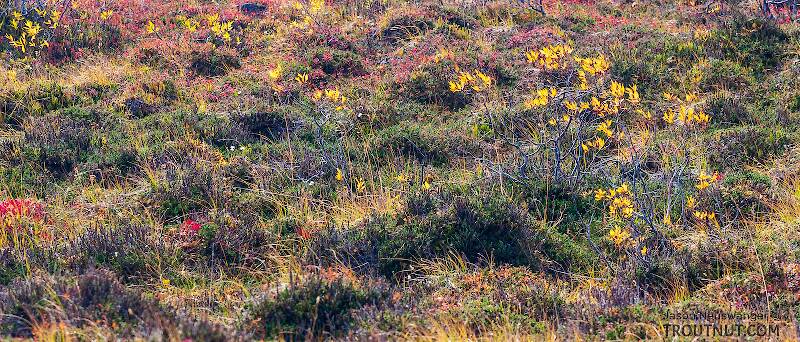
The boots also kept me dry for shallow creek crossings, and their breathability prevented sweaty, wet socks.
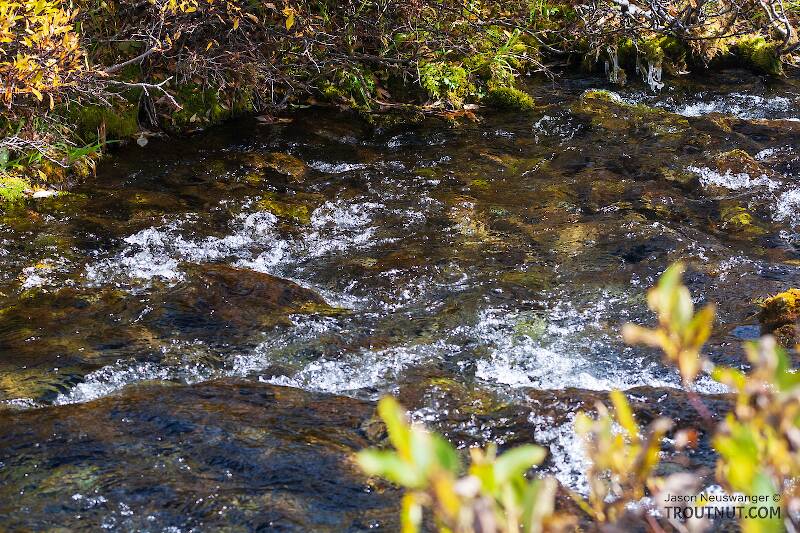
Wiggy's Glacier Hunter 15-degree sleeping bag
Outstanding. I got cold in my base layer when the temperature dipped into the teens the night after I butchered my kill, so I put my wet, bloody jacket and outer pants back on. Well-insulated body heat warmed everything up and, with the bag's breathability, dried everything out by morning.
Vortex Viper HD 15-45x65 spotting scope
I love this thing. I haven't hunted with the "premium" scopes like Zeiss and Swarovski for comparison, but I can't imagine an improvement that would justify the price difference. When I couldn't see something clearly through this scope, it was usually due to a shimmering mirage effect in the air that no spotting scope could fix.
Butler Creek Blizzard flip-up scope cover
The only piece of gear that really annoyed me. They kept flipping open when they weren't supposed to. The basic design is good but I wish they were a little better built.
Two human legs
Completely insufficient. The ideal mountain hunter is a centaur-like creature with a human torso atop a mountain goat's body. I could not live up to this, but a steady diet of electrolyte drink (vitalyte) and ibuprofin pushed me in the right direction just far enough to get the job done.

